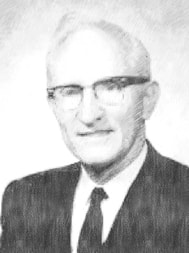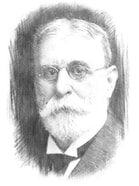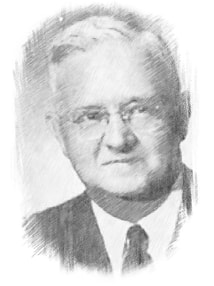Romans 8:26-30

Ps 139:4 says "Before a word is on my tongue you know it completely, I Lord." Before a need or desire has reached a level of conscious understanding at which you can put it into words--while it is still unformed and raw--God already knows it fully. When a desire is nothing but an inarticulate groan--before you can form it into sentences--the Spirit of God is already speaking it with perfect clarity. By the time you begin to speak your need or desire, you are simply joining into a flow of prayer that is already in progress. "Before they call I will answer, while they are still speaking I will hear." (Is 65:24).
 Stan Grant
Stan Grant
Lament is described in Paul’s Letter to the Romans as “sighs too deep for words” (8:26). I know that sigh. I know what it is to breathe in despair. I know lament.
“Lament” is not a word we use too often today. It is a word that has fallen from favour. We speak of reconciliation, of rights, of justice. Sometimes we speak of healing, or even of truth. But these words fall short for me. They are simply too convenient. They are words designed to convince; words to measure ourselves by.
These are words of politics. And I am not a person of politics. I seek the impossibility of existence — the reach for eternity — in a world where politics reduces us only to what is possible. For I am a person of faith. I am a person of belonging. I am a person of country. I am person of kinship. I seek the things that endure — the things of our soul. And I am a person of sorrow.
Lament is a place of deep sorrow. It is a place of cries. But there is, as the writer and musician Michael Card has put it, something sacred about sorrow. It is the way we reach towards God.
But we have lost the words of lament, haven’t we? We have replaced those words with political words. So here I want to speak the unfashionable language of lament, and try to reclaim these and other words that have passed out of circulation, or have lost their true meaning — words like love, like divine. I want to use those words to speak back to the age. Lament is described in Paul’s Letter to the Romans as “sighs too deep for words” (8:26). I know that sigh. I know what it is to breathe in despair. I know lament.
“Lament” is not a word we use too often today. It is a word that has fallen from favour. We speak of reconciliation, of rights, of justice. Sometimes we speak of healing, or even of truth. But these words fall short for me. They are simply too convenient. They are words designed to convince; words to measure ourselves by.
These are words of politics. And I am not a person of politics. I seek the impossibility of existence — the reach for eternity — in a world where politics reduces us only to what is possible. For I am a person of faith. I am a person of belonging. I am a person of country. I am person of kinship. I seek the things that endure — the things of our soul. And I am a person of sorrow.
Lament is a place of deep sorrow. It is a place of cries. But there is, as the writer and musician Michael Card has put it, something sacred about sorrow. It is the way we reach towards God.
But we have lost the words of lament, haven’t we? We have replaced those words with political words. So here I want to speak the unfashionable language of lament, and try to reclaim these and other words that have passed out of circulation, or have lost their true meaning — words like love, like divine. I want to use those words to speak back to the age. The theologian Mark Vroegop has written that “lament invites us to grieve and trust, to struggle and believe”. We First Nations people know that struggle, that grief, that challenge of trust when our trust is betrayed. But it is not our struggle alone. It is the struggle we share. We grieve — all of us — because we want to trust. We need to believe. But we are all betrayed by an age of division, of ruthless contests for power, of rapacious exploitation of people and the planet, of cynical opportunists pretending to be leaders.
We are betrayed by an age of media that thinks debate is finding the point of difference and widening it — stoking the fires of a toxic social media with its self-righteous and performative anger, its craven need for validation, for “likes”, its online pile-ons and cancellations. We live in an age of prosecution without process: no truth but our own truths. No wonder this has been called an “age of anger”.
Lament, too, can be an expression of anger, but not the self-righteous anger of our time. No, an eternal, humble, righteous anger. We have the right — even the responsibility — to be angry, but not the right to hate. For me, lament is ultimately a holy state of grace.
--Stan Grant; ABC Religion & Ethics; “This is the way healing begins”: Recovering the language of lament in a disenchanted age 8.20.23
“Lament” is not a word we use too often today. It is a word that has fallen from favour. We speak of reconciliation, of rights, of justice. Sometimes we speak of healing, or even of truth. But these words fall short for me. They are simply too convenient. They are words designed to convince; words to measure ourselves by.
These are words of politics. And I am not a person of politics. I seek the impossibility of existence — the reach for eternity — in a world where politics reduces us only to what is possible. For I am a person of faith. I am a person of belonging. I am a person of country. I am person of kinship. I seek the things that endure — the things of our soul. And I am a person of sorrow.
Lament is a place of deep sorrow. It is a place of cries. But there is, as the writer and musician Michael Card has put it, something sacred about sorrow. It is the way we reach towards God.
But we have lost the words of lament, haven’t we? We have replaced those words with political words. So here I want to speak the unfashionable language of lament, and try to reclaim these and other words that have passed out of circulation, or have lost their true meaning — words like love, like divine. I want to use those words to speak back to the age. Lament is described in Paul’s Letter to the Romans as “sighs too deep for words” (8:26). I know that sigh. I know what it is to breathe in despair. I know lament.
“Lament” is not a word we use too often today. It is a word that has fallen from favour. We speak of reconciliation, of rights, of justice. Sometimes we speak of healing, or even of truth. But these words fall short for me. They are simply too convenient. They are words designed to convince; words to measure ourselves by.
These are words of politics. And I am not a person of politics. I seek the impossibility of existence — the reach for eternity — in a world where politics reduces us only to what is possible. For I am a person of faith. I am a person of belonging. I am a person of country. I am person of kinship. I seek the things that endure — the things of our soul. And I am a person of sorrow.
Lament is a place of deep sorrow. It is a place of cries. But there is, as the writer and musician Michael Card has put it, something sacred about sorrow. It is the way we reach towards God.
But we have lost the words of lament, haven’t we? We have replaced those words with political words. So here I want to speak the unfashionable language of lament, and try to reclaim these and other words that have passed out of circulation, or have lost their true meaning — words like love, like divine. I want to use those words to speak back to the age. The theologian Mark Vroegop has written that “lament invites us to grieve and trust, to struggle and believe”. We First Nations people know that struggle, that grief, that challenge of trust when our trust is betrayed. But it is not our struggle alone. It is the struggle we share. We grieve — all of us — because we want to trust. We need to believe. But we are all betrayed by an age of division, of ruthless contests for power, of rapacious exploitation of people and the planet, of cynical opportunists pretending to be leaders.
We are betrayed by an age of media that thinks debate is finding the point of difference and widening it — stoking the fires of a toxic social media with its self-righteous and performative anger, its craven need for validation, for “likes”, its online pile-ons and cancellations. We live in an age of prosecution without process: no truth but our own truths. No wonder this has been called an “age of anger”.
Lament, too, can be an expression of anger, but not the self-righteous anger of our time. No, an eternal, humble, righteous anger. We have the right — even the responsibility — to be angry, but not the right to hate. For me, lament is ultimately a holy state of grace.
--Stan Grant; ABC Religion & Ethics; “This is the way healing begins”: Recovering the language of lament in a disenchanted age 8.20.23
 Robert Rothwell Files
Robert Rothwell Files
If we are not careful, we might think that Romans 8:28 is telling us that things work together for our good on their own. However, in light of the biblical teaching on divine providence, as well as the immediate context, Paul is really telling us that God Himself is the One who works all things together for our good. Look at verses 29–30 again, where Paul describes the end toward which we are moving. Foreknowledge, predestination, calling, justification, and glorification are all things that God does, and God must work in and through the various circumstances we face—our joys, our troubles, and so on—in order to communicate all of the benefits of salvation to us. He works out all things according to the counsel of His will (Eph. 1:11).
--Robert Rothwell; Ligoniers; What Does Romans 8:28 Mean? 11.13.23
--Robert Rothwell; Ligoniers; What Does Romans 8:28 Mean? 11.13.23

Paul does not say the Holy Spirit removes our “weaknesses,” but that He “helps” us. We live our whole Christian life in conditions of humility and weaknesses. The Holy Spirit comes along side as our Helper and gives us wisdom and strength. He helps those who cannot help themselves.
What is the problem? We do not know what we should ask God. What is His sovereign will for us, our family, our ministry, etc.? We often do not know what we need, nor do we know what is best for us. Every Christian experiences these weaknesses and it is this that makes prayer difficult. Have you not experienced on numerous occasions how difficult it is to stop and pray in your busy schedule, and then when you are in His presence in prayer it is so sweet and wonderful you do not want to stop? Your spirit refuses to leave the sacred place. The Holy Spirit helps us in the weaknesses. He “intercedes” for us with groans that words cannot express” (v. 26). The all-powerful Holy Spirit is our Helper. He comes to our aid for access to the Father (Eph. 2:18). The apostle Paul uses the word sunantilambanetai that denotes a person coming alongside another to take part of a heavy load to help him bear it.
What is the problem? We do not know what we should ask God. What is His sovereign will for us, our family, our ministry, etc.? We often do not know what we need, nor do we know what is best for us. Every Christian experiences these weaknesses and it is this that makes prayer difficult. Have you not experienced on numerous occasions how difficult it is to stop and pray in your busy schedule, and then when you are in His presence in prayer it is so sweet and wonderful you do not want to stop? Your spirit refuses to leave the sacred place. The Holy Spirit helps us in the weaknesses. He “intercedes” for us with groans that words cannot express” (v. 26). The all-powerful Holy Spirit is our Helper. He comes to our aid for access to the Father (Eph. 2:18). The apostle Paul uses the word sunantilambanetai that denotes a person coming alongside another to take part of a heavy load to help him bear it.
 Rick Renner
Rick Renner
Romans 8:26 begins, “Likewise the Spirit also helpeth our infirmities: for we know not what we should pray for as we ought….” That word “helpeth” is extremely important because it conveys the idea of real partnership and cooperation and paints the picture of two individuals working together to get the job done. The Greek word translated “helpeth” is actually a compound of three Greek words. The first word is sun, meaning to do something in conjunction with someone else. The second word is anti, which means against. The third word is lambano, which means to take or to receive. When these three words are joined, the new word, sunantilambano, means to take hold of something with someone else, gripping it together as tightly as possible, and throwing your combined weight against it to move it out of the way.
For instance, suppose you walk out of your front door one morning and discover that someone has placed a huge boulder in the middle of your driveway during the night. You walk over and push on that boulder to move it out of your way, but it’s too heavy and you can’t budge it. Then you try to move it from the other direction, but no matter how much you tug and pull, you can’t get the job done by yourself. So what do you do? You call a friend and ask him for help. He comes over, grabs hold of that boulder with you, and together the two of you press against it with all your strength until you have moved the boulder out of the way.
This Greek word sunantilambano, translated “helpeth,” powerfully conveys this same idea of partnership and cooperation to remove an obstacle. It tells us that the Holy Spirit literally becomes one with us in the task of removing every obstacle. In the midst of our weaknesses when we are inadequate to get the job done, the Holy Spirit says, “Let me grab hold of that hindrance with you, and you and I will push against it together until it is moved completely out of your way.”
In this way, prayer becomes a twofold partnership between you and the Holy Spirit. When that really becomes a revelation to your heart — when you realize that your prayers are not something you’re responsible for alone — it will forever change your prayer life.
Verse 26 goes on to say, “Likewise the Spirit also helpeth our infirmities….” It is the Greek word asthenia, which would better be translated “weaknesses.” It is used to describe people who are sickly or ailing in their bodies, minds, or emotions. Frequently it is also used to describe people who are spiritually weak.
Thus, we see that the Holy Spirit comes to help us because we are asthenia. We are simply too weak — physically, mentally, spiritually — and by ourselves we don’t have what it takes to get the job done. This is why we need our Partner to help us. We simply cannot pray like we need to by ourselves. So the Holy Spirit comes to assist us in prayer, throwing His weight against our weaknesses to remove them from our lives. The truth is, according to this verse, we cannot remove anything from our lives without the Holy Spirit’s assistance. And that is why He comes to bear this responsibility for us, assisting us in removing anything in our lives that is ailing — whether it is frailty in the body, a sickly mental state, or a weakness in our spiritual walk. --Rick Renner; Renner Ministries; The Holy Spirits Role in Removing Obstacles
For instance, suppose you walk out of your front door one morning and discover that someone has placed a huge boulder in the middle of your driveway during the night. You walk over and push on that boulder to move it out of your way, but it’s too heavy and you can’t budge it. Then you try to move it from the other direction, but no matter how much you tug and pull, you can’t get the job done by yourself. So what do you do? You call a friend and ask him for help. He comes over, grabs hold of that boulder with you, and together the two of you press against it with all your strength until you have moved the boulder out of the way.
This Greek word sunantilambano, translated “helpeth,” powerfully conveys this same idea of partnership and cooperation to remove an obstacle. It tells us that the Holy Spirit literally becomes one with us in the task of removing every obstacle. In the midst of our weaknesses when we are inadequate to get the job done, the Holy Spirit says, “Let me grab hold of that hindrance with you, and you and I will push against it together until it is moved completely out of your way.”
In this way, prayer becomes a twofold partnership between you and the Holy Spirit. When that really becomes a revelation to your heart — when you realize that your prayers are not something you’re responsible for alone — it will forever change your prayer life.
Verse 26 goes on to say, “Likewise the Spirit also helpeth our infirmities….” It is the Greek word asthenia, which would better be translated “weaknesses.” It is used to describe people who are sickly or ailing in their bodies, minds, or emotions. Frequently it is also used to describe people who are spiritually weak.
Thus, we see that the Holy Spirit comes to help us because we are asthenia. We are simply too weak — physically, mentally, spiritually — and by ourselves we don’t have what it takes to get the job done. This is why we need our Partner to help us. We simply cannot pray like we need to by ourselves. So the Holy Spirit comes to assist us in prayer, throwing His weight against our weaknesses to remove them from our lives. The truth is, according to this verse, we cannot remove anything from our lives without the Holy Spirit’s assistance. And that is why He comes to bear this responsibility for us, assisting us in removing anything in our lives that is ailing — whether it is frailty in the body, a sickly mental state, or a weakness in our spiritual walk. --Rick Renner; Renner Ministries; The Holy Spirits Role in Removing Obstacles

We pray because God is sovereign. It is no use praying to a god who is not already in charge. We pray because we are not in control. If we were, there would be no need to ask. We pray because it is God who works in us “both to will and to work for his good pleasure” (Philippians 2:13). Neither do we know “what to pray for as we ought, but the Spirit himself intercedes for us with groanings too deep for words” (Romans 8:26). We could not pray unless God worked in us.

God sends His Holy Spirit to His people. He comes alongside to help them in their weakness, to be their advocate, and telling them what to pray when they come before the Father. He intercedes for the Christian who utters wordless groanings which God hears, understands, and approves because it is God who sends the Spirit to work these things in His people. He only sends his Spirit to true believers. If, therefore, one finds themselves giving vent to these groanings, be encouraged. It is proof of a true relationship with God because it is the Spirit that produces these groanings. Christians should rejoice as they belong to Him.
|
Through the Spirit, God provides for us in many different ways on this side of eternity. Generally, he helps us in our weakness. Paul is acknowledging here that, even as Christians, we remain weak in and of ourselves. Physically, we remain creatures in fragile bodies with sometimes baffling emotions. Spiritually, we can become weak in our faith and/or in our resistance to sinful desires. As Paul will begin to make clear, however, God's Spirit with us makes all the difference. He continually helps us in and even through our weakness. He steps in. He helps with the burden.
More specifically, Paul writes that we are so weak that at times we do not know what to pray for! We have been given access, in prayer, to our Father God. We feel the need, the longing, for Him, but what do we ask for? The Spirit steps in and carries those unsaid "groanings"—those thoughts and feelings we simply cannot express in human words—to God. He both creates the connection from ourselves to God and provides the content of our communication. -Bible ref 
The one who searches the hearts is God (1 Chron. 28:9, Ps. 7:9; 139:23; Jer. 17:10). Although Jesus is also said to search the heart ( Rev. 2:23), historically, the great “Searcher of hearts” was God, which also fits in the flow of the verse. The “mind of the Spirit” does not refer to the “spiritual mind” of a Christian, but rather the mind of Jesus Christ, who is the one who makes intercession for us (Heb. 7:25).
|
" . . . but the Spirit intercedes for us through wordless groans." My understanding of this last part of the verse is that the Holy Spirit intercedes for us on an emotional level. John MacArthur says, these groans refer to "Divine articulations within the Trinity that cannot be expressed in words, but carry profound appeals for the welfare of every believer." One of the commentaries I read, suggests the Spirit takes up our needs at the deepest emotional level and conveys our hurts and cares to the Father's throne, all in line with the will of God. This should encourage us to pour out our hearts before Him. -Amanda Savage

The word intercession in the Greek means “to pray, intercede for, to entreat, or meet with a person for the purpose of supplication”. It also means “bending over” to intercede on someone’s behalf, or to make a petition.
Like a bridge arched over troubled water, Jesus “stands in the gap” in intercession for us. Whatever we are in need of, He entreats to the Father on our behalf. Now we can bravely cross that bridge and approach God’s throne grace with confidence, and now we have the privilege of interceding for others through the power of the Holy Spirit -Garments of Splendor
Like a bridge arched over troubled water, Jesus “stands in the gap” in intercession for us. Whatever we are in need of, He entreats to the Father on our behalf. Now we can bravely cross that bridge and approach God’s throne grace with confidence, and now we have the privilege of interceding for others through the power of the Holy Spirit -Garments of Splendor

Not only do we live in a broken world that brings suffering, but God is most motivated by our deeper spiritual needs. That means when we want Him to fix something, He may allow us—for different seasons—to experience pain and suffering instead. Through these trials and tribulations, the Word of God promises, God can reveal Himself to us. God wants us to learn how to walk in the power of His love, rather than under the challenge of our circumstances. That doesn’t dismiss or minimize authentic pain. In fact, God’s love promotes our ability to express our pain and feel grief (Romans 8:26). However, God’s love interacts with us at our true need: to teach us to trust Him, rely on Him, and receive what we need from Him. From there, He even promises to use ALL things together of our good (Romans 8:28). He knows that a life apart from Him leads to destruction, but a life in Him leads to fullness and peace. Therefore, He seeks to eradicate the things in our lives that make us “sick” so we can maintain a vibrant, healthy centering point on Him. When we are aligned and living under God’s homeostatic environment, we are free to become all He created us to be. True love will promote this at all costs. The love of God is one of the most confusing areas in the Christian life, because we often misunderstand both its source and its agenda. First of all, God’s love is not a human resource. Rather, His love comes through a connection to Him. The Holy Spirit injects love into us, and then we have the capability to give it away to others. That doesn’t mean we can’t have a form of love; but human love will always fall short, and doesn’t have the power to overcome the effects of sin’s harm. In the design of the family, God developed all roles with the intent that God’s love would be driving and influencing their purposes. It was never meant that one person do all the loving, and another all the receiving. In fact, a family cannot remain healthy unless everyone is carrying their own supply. Through love, all rules, agendas and overall interactions will promote the well-being of each member. Thus, it will create an environment that will not care about happiness in the moment, but the spiritual and emotional needs with more long-term ramifications. One of the most significant breakdowns in the family system occurs when love isn’t the driving force. When love is not present, a selfish system typically takes it place. This creates a dynamic where a person begins to satisfy a personal agenda that will promote their own needs and interests. This may harm others as the cost of having those needs met. People become mere instruments of fulfilling those personal interests. As horrible as it sounds, most family members of an addict understand this firsthand. They have witnessed an addict’s behavior revolve around this very dynamic. A family system that operates by trying to satisfy the priority of one person, rather than a system centered on God, has more ramifications than we can mention in this brief chapter. It is the awful reality of life apart from God. What’s deceitful is we can operate this way without even knowing it. Yet, rest assured, God’s love doesn’t beat us over the head by exposing inappropriately centered areas. Rather, it offers us an understanding of what we’ve accepted as “normal” centering, but is far from His intent.
|
Paul’s expression of the Holy Spirit’s role in our praying suggests the intimate connection between the Holy Spirit and intercession. As stated earlier, intercession is at the heart of our relationship to the Father, the risen and reigning Christ, and to the Holy Spirit.
Two verses of Scripture combine to give the picture. Romans 8:27 says that God, who searches the heart, knows what is the mind of the Spirit, because the Spirit intercedes for the saints according to the will of God. Put that with the exhilarating fact that Christ ever lives to make intercession for us and you have the dynamic work of the Trinity: Father, Son, and Holy Spirit. God searches our minds, and the Holy Spirit becomes the intercessor of our hearts. As the Risen Lord, Jesus is the Great Intercessor, so the intercessions of the Holy Spirit and the Christ are one. As we abide in Christ, which we are going to think more about in the days ahead, our intercession is one with the Holy Spirit and Christ, the Great Intercessor, in the throne room of heaven. -Maxie Dunnam |
The Acts of the Apostles might well be called the Acts of the Holy Spirit, and two great truths stand out: First, where there is much prayer, there is vivid expression of the Holy Spirit; and second, where there is the vivid presence of the Holy Spirit, there is much praying. This dynamic relationship—prayer and the presence of the Holy Spirit—produces that which is beyond us; in fact, this is the source of miracles. One of the reasons we don’t see more miracles is that we don’t expect more miracles. Recalling the scripture passage from Day 11, Peter’s friends were praying, but they were not expecting.
Paul’s expression of the Holy Spirit’s role in our praying—which is the memory passage we are presently working with—suggests the intimate connection between the Holy Spirit and intercession. As stated earlier, intercession is at the heart of our relationship to the Father, the risen and reigning Christ, and to the Holy Spirit.- Maxie Dunham; Seedbed |

True prayer acknowledges that of ourselves we are incapable of striking the right course in prayer. True prayer demands complete surrender and complete confidence, so that we can say, "We do not know what we ought to pray for, but the Spirit himself intercedes for us with groans that words cannot express" (Romans 8:26-30).
When we come before God, we do not always find the right words. We are often unclear about what we want to pray for. We are sometimes so weak we cannot even gather our thoughts sufficiently to frame our prayer in words at all. Yet there is one who knows everything that is in our hearts. If we know him, then we will say with Peter, "Lord, you know all things. You know that I love you" (John 21:15-17).
When we come before God, we do not always find the right words. We are often unclear about what we want to pray for. We are sometimes so weak we cannot even gather our thoughts sufficiently to frame our prayer in words at all. Yet there is one who knows everything that is in our hearts. If we know him, then we will say with Peter, "Lord, you know all things. You know that I love you" (John 21:15-17).
If you want to be like Jesus, remember, He had a wilderness, a Gethsemane, and a Judas.
– Leonard Ravenhill –
– Leonard Ravenhill –
Yes, we are told “in all things” He’s certainly working for His purpose — not ours.
No apostle of our Lord suffered more than Paul, and he certainly earned the right to speak boldly to the Early Church. His words still ring true nearly 2,000 years later. Each day, whatever his circumstance, Paul persevered for Christ. -Jim Langle
The fact of our calling is central in five statements having to do with our salvation. God foreknew, predestinated, called, justified, and glorified us. He has been pleased to write all of these things in the past tense. Our glorification is as certain as our calling and our justification.
God is able to use every circumstance in your life for His and your good. Happiness is one thing, good is another. Good, in this sense, will in the long run bring in its turn perfect blessedness. But good may not be happiness or freedom from pain, strife, care and pain. If we think all things work together to bring the godly man all that he desires, or freedom from trouble and trials and distress, then we misread the words. “Them that love God” and “those called according to His purpose” are the two complimentary aspects of the religious life. There is the human side of relation, “love,” and the Divine side, “the call.”
For those who bow before Him of whom and by whom all things are named, nothing is meaningless, and true community begins with communion with God through Christ. Because nothing is meaningless, we can be confident that, whatever our calling, it is not a disaster nor a tragedy. We know that God works ALL things for the good…
No apostle of our Lord suffered more than Paul, and he certainly earned the right to speak boldly to the Early Church. His words still ring true nearly 2,000 years later. Each day, whatever his circumstance, Paul persevered for Christ. -Jim Langle
The fact of our calling is central in five statements having to do with our salvation. God foreknew, predestinated, called, justified, and glorified us. He has been pleased to write all of these things in the past tense. Our glorification is as certain as our calling and our justification.
God is able to use every circumstance in your life for His and your good. Happiness is one thing, good is another. Good, in this sense, will in the long run bring in its turn perfect blessedness. But good may not be happiness or freedom from pain, strife, care and pain. If we think all things work together to bring the godly man all that he desires, or freedom from trouble and trials and distress, then we misread the words. “Them that love God” and “those called according to His purpose” are the two complimentary aspects of the religious life. There is the human side of relation, “love,” and the Divine side, “the call.”
For those who bow before Him of whom and by whom all things are named, nothing is meaningless, and true community begins with communion with God through Christ. Because nothing is meaningless, we can be confident that, whatever our calling, it is not a disaster nor a tragedy. We know that God works ALL things for the good…
 Lauren McAfee
Lauren McAfee
...There are lies I have liked to believe as truth. Yet deep down, I know that clinging to a warped sense of reality will only bring me pain in the long run. One lie I’ve liked to believe is tied up in my own sense of control over my life — because life often feels most bearable when I think I have full control.
When Jesus taught His famous Sermon on the Mount, in Matthew 7, He closed with this analogy: You can choose to build your house on the rock or on the sand. “Everyone then who hears these words of mine and does them will be like a wise man who built his house on the rock” (Matthew 7:24).
...I know almost nothing about construction, but when I get the chance to spend a day on the beach playing in the sand with my daughter, it is easy to see why sand makes a poor foundation for a home. Sand is nothing but rock fragments. The grains are easily moved by the waves or even a slight breeze. When I convince myself that because I am putting forth effort, God is going to reward me with all my dreams coming true, I am choosing to build my life on sand. But when I build my life on Jesus, my life has a firm foundation.
This teaching is about much more than my temptation to build my life on a false understanding of God; it identifies a false gospel I want to believe, one where I work to secure my own salvation and put God in my debt. The truth is that if I truly bring nothing to my relationship with God, then there is no limit to what He can require of me. I have no leverage over God. Rather, I must surrender wholly to Him. And in doing so, I find the peace I once sought in my own efforts to control my life.
Pastor Timothy Keller’s teaching on this passage warns against my religious attempts:
“The Sermon on the Mount is not a ladder. It’s not a way to climb up to God by doing certain things. It says there are two ways. One way is to say, ‘Out of my goodness I will seek to get God and other people to give me what I want in my inner emptiness; that is, a feeling of approval or worth.’ Or you can say, ‘I’m going to build my whole life and my approach to God on what Jesus has done for me.’ Be your own savior or let Him be your savior.”
The uncomfortable reckoning in my own life is a constant realization that I am not as in control of things as I would like to believe. My efforts to be in control are an effort to replace reliance on God. I don’t have control over whether or not I have children, whether or not my body faces infertility, or how people respond to me on social media. I also do not have control over when God’s presence feels near. But I can control whether or not I put myself in a place to be near God. I can control whether or not I choose to be involved in my community at my local church. I can control whether or not I prioritize Bible study, reflection and prayer.
When life is challenging, I am often tempted to doubt who God is. I constantly need to remind myself of the character of God and recall that He always does the best thing. Romans 8:28 guarantees it. I don’t always feel like having faith, but as Charles Spurgeon says, “God is too good to be unkind, and He is too wise to be mistaken. And when we cannot trace His hand, we must trust His heart.” May we trust His heart as our firm foundation today and every day. -Lauren McAfee; Proverbs 31 Ministries; Lies We Like; 9.6.23
When Jesus taught His famous Sermon on the Mount, in Matthew 7, He closed with this analogy: You can choose to build your house on the rock or on the sand. “Everyone then who hears these words of mine and does them will be like a wise man who built his house on the rock” (Matthew 7:24).
...I know almost nothing about construction, but when I get the chance to spend a day on the beach playing in the sand with my daughter, it is easy to see why sand makes a poor foundation for a home. Sand is nothing but rock fragments. The grains are easily moved by the waves or even a slight breeze. When I convince myself that because I am putting forth effort, God is going to reward me with all my dreams coming true, I am choosing to build my life on sand. But when I build my life on Jesus, my life has a firm foundation.
This teaching is about much more than my temptation to build my life on a false understanding of God; it identifies a false gospel I want to believe, one where I work to secure my own salvation and put God in my debt. The truth is that if I truly bring nothing to my relationship with God, then there is no limit to what He can require of me. I have no leverage over God. Rather, I must surrender wholly to Him. And in doing so, I find the peace I once sought in my own efforts to control my life.
Pastor Timothy Keller’s teaching on this passage warns against my religious attempts:
“The Sermon on the Mount is not a ladder. It’s not a way to climb up to God by doing certain things. It says there are two ways. One way is to say, ‘Out of my goodness I will seek to get God and other people to give me what I want in my inner emptiness; that is, a feeling of approval or worth.’ Or you can say, ‘I’m going to build my whole life and my approach to God on what Jesus has done for me.’ Be your own savior or let Him be your savior.”
The uncomfortable reckoning in my own life is a constant realization that I am not as in control of things as I would like to believe. My efforts to be in control are an effort to replace reliance on God. I don’t have control over whether or not I have children, whether or not my body faces infertility, or how people respond to me on social media. I also do not have control over when God’s presence feels near. But I can control whether or not I put myself in a place to be near God. I can control whether or not I choose to be involved in my community at my local church. I can control whether or not I prioritize Bible study, reflection and prayer.
When life is challenging, I am often tempted to doubt who God is. I constantly need to remind myself of the character of God and recall that He always does the best thing. Romans 8:28 guarantees it. I don’t always feel like having faith, but as Charles Spurgeon says, “God is too good to be unkind, and He is too wise to be mistaken. And when we cannot trace His hand, we must trust His heart.” May we trust His heart as our firm foundation today and every day. -Lauren McAfee; Proverbs 31 Ministries; Lies We Like; 9.6.23
In Luke 10:25-28 we have some teaching of our Lord on the subject "And behold, a certain lawyer stood up and made trial of him saying, Teacher, what shall I do to inherit eternal life? and he said unto him, What is written in the law? How readest thou? And he answering said, Thou shalt love the Lord thy God with all thy heart, and with all thy soul, and with all thy mind; and thy neighbor as thyself, And he said unto him, Thou hast answered right: this do and thou shalt live."
Here we have a question presented to the Lord by a lawyer. The question is, "What shall I do to inherit eternal life?" Note that the question has to do with the human effort required to inherit eternal life. The one raising the question did not think that he could have eternal life in possession in this life as is evidenced by his question. He wanted to know what he could do to inherit eternal life. That the Lord did not believe nor teach that one can have eternal life in possession is evident from several considerations. He did not correct the lawyer on this point, but caused him to answer his own question and when the lawyer had answered his own question Christ endorsed his answer by saying, "Thou hast answered right: this do, and thou shalt live." Thus we learn that man must do something to live — that eternal life is had in prospect, that is, it is a thing to be inherited — and that love is doing.
The first part of the answer will serve as our text for this time. "Thou shalt love the Lord thy God with all thy heart, and with all thy soul, and with all thy strength and with all thy mind." We are to love God with all the faculties of our being, with all our heart, which includes the emotions, with all our soul, which takes in all the spiritual faculties, with all our strength, the energy of our being, with all our mind, this involves the intellectual faculties. All the powers of our being are to be concentrated in love for God. But suppose we be a bit more specific. We are not only required to love God with our heart, soul, and mind but with our 'strength. How could we love God with our strength other than by exercising that strength in doing His will? That, my friends, is human effort.
But another passage on the subject of man's love for God. Romans 8:28, "And we know that to them that love God all things work together for good, even to them that are called according to his purpose." "Them that are called according to his purpose" are here shown to be "them that love God." This clearly establishes that man has a part in being called, for them that love God are the ones called according to his purpose. Note that it is "them that love God," not, "them that God loves." If "them that are called" included all that God loved, then all men would be in that number for God loved the world. The number of them called according to God's purpose is limited to them that love God. We are called through the gospel. Second Thessalonians 2:14, "Whereunto he called you through our gospel, to the obtaining of the glory of our Lord Jesus Christ." Thus we see that God does not arbitrarily and irresistibly call any individual but rather calls all through the gospel. Those who by obedience to the gospel accept this call constitute the "them that are called according to his purpose." But look at Romans 8:28 again to be fully assured that "them that love God" and "them that are called according to his purpose" are one and the same class. "And we know that to them that love God all things work together for good, even to them that are called according to his purpose." Well, as "them that love God" and "them that are called according to his purpose" are the same class, the same ones, just described by different terms, we raise the question, Who is it that loves God? What is the gauge by which we can determine if we love God? Do you love God? How do you know? This is a vital thing for we have learned that if you do not love God you are not among "them called according to his purpose."
--Robert H Farish; The Gospel Guardian; Thou Shalt Love The Lord Thy God 8.12.54
Here we have a question presented to the Lord by a lawyer. The question is, "What shall I do to inherit eternal life?" Note that the question has to do with the human effort required to inherit eternal life. The one raising the question did not think that he could have eternal life in possession in this life as is evidenced by his question. He wanted to know what he could do to inherit eternal life. That the Lord did not believe nor teach that one can have eternal life in possession is evident from several considerations. He did not correct the lawyer on this point, but caused him to answer his own question and when the lawyer had answered his own question Christ endorsed his answer by saying, "Thou hast answered right: this do, and thou shalt live." Thus we learn that man must do something to live — that eternal life is had in prospect, that is, it is a thing to be inherited — and that love is doing.
The first part of the answer will serve as our text for this time. "Thou shalt love the Lord thy God with all thy heart, and with all thy soul, and with all thy strength and with all thy mind." We are to love God with all the faculties of our being, with all our heart, which includes the emotions, with all our soul, which takes in all the spiritual faculties, with all our strength, the energy of our being, with all our mind, this involves the intellectual faculties. All the powers of our being are to be concentrated in love for God. But suppose we be a bit more specific. We are not only required to love God with our heart, soul, and mind but with our 'strength. How could we love God with our strength other than by exercising that strength in doing His will? That, my friends, is human effort.
But another passage on the subject of man's love for God. Romans 8:28, "And we know that to them that love God all things work together for good, even to them that are called according to his purpose." "Them that are called according to his purpose" are here shown to be "them that love God." This clearly establishes that man has a part in being called, for them that love God are the ones called according to his purpose. Note that it is "them that love God," not, "them that God loves." If "them that are called" included all that God loved, then all men would be in that number for God loved the world. The number of them called according to God's purpose is limited to them that love God. We are called through the gospel. Second Thessalonians 2:14, "Whereunto he called you through our gospel, to the obtaining of the glory of our Lord Jesus Christ." Thus we see that God does not arbitrarily and irresistibly call any individual but rather calls all through the gospel. Those who by obedience to the gospel accept this call constitute the "them that are called according to his purpose." But look at Romans 8:28 again to be fully assured that "them that love God" and "them that are called according to his purpose" are one and the same class. "And we know that to them that love God all things work together for good, even to them that are called according to his purpose." Well, as "them that love God" and "them that are called according to his purpose" are the same class, the same ones, just described by different terms, we raise the question, Who is it that loves God? What is the gauge by which we can determine if we love God? Do you love God? How do you know? This is a vital thing for we have learned that if you do not love God you are not among "them called according to his purpose."
--Robert H Farish; The Gospel Guardian; Thou Shalt Love The Lord Thy God 8.12.54
 Merrill F Unger Files
Merrill F Unger Files
“privileges with reference to the performance of special services. Thus the Jews were “a chosen nation,” “the elect.” Thus also in the NT, bodies of Christian people, or churches, are called “the elect.” (2) To the divine choice of individuals to a particular office or work. Thus Cyrus was elected of God to bring about the rebuilding of the Temple, and thus the twelve were chosen to be apostles and Paul to be the apostle to the Gentiles. (3) To the divine choice of individuals to be the children of God, and therefore heirs of heaven. It is with regard to election in this third sense that theological controversies have been frequent and at times most fierce. Calvinists hold that the election of individuals to salvation is absolute, unconditional, by virtue of an eternal divine decree. Arminians regard election as conditional upon repentance and faith; the decree of God is that all who truly repent of their sins and believe on the Lord Jesus Christ shall be saved. But every responsible person determines for himself whether or not he will repent and believe. Sufficient grace is bestowed upon everyone to enable him to make the right decision.” ― Merrill F. Unger, The New Unger's Bible Dictionary
 RD Norman
RD Norman
In the middle of his heavy-weight theological epistle to the Romans, the Apostle Paul wrote, “For those whom he foreknew he also predestined to be conformed to the image of his Son, in order that he might be the firstborn among many brothers” (Rom 8:29). As Christians, we are predestined to be conformed to Christ. That is an unchangeable reality. If you are in Christ, you have partaken in the fruit of this predestined grace.
Does that mean we enter a state of perfection as soon as we are converted? Not at all. What it means is that we have Christ’s righteousness, secured by His cleansing blood (Heb 9:14). He has taken our sin, paid the price, and transferred His righteousness to our accounts (2 Cor 5:21). We are no longer condemned, because we wear His robes of righteousness. There is still, however, indwelling sin within us. As we live out the Christian life, we are expected to deal with that sin. As the Lord shines more light on our hearts, we are to kill off that sin --RD Norman; G3
Does that mean we enter a state of perfection as soon as we are converted? Not at all. What it means is that we have Christ’s righteousness, secured by His cleansing blood (Heb 9:14). He has taken our sin, paid the price, and transferred His righteousness to our accounts (2 Cor 5:21). We are no longer condemned, because we wear His robes of righteousness. There is still, however, indwelling sin within us. As we live out the Christian life, we are expected to deal with that sin. As the Lord shines more light on our hearts, we are to kill off that sin --RD Norman; G3
 Steve Gallagher
Steve Gallagher
"We are all familiar with Romans 8:28 and often use it when things go badly. However, most of us take this verse out of context. It is the next verse that is the key. "And we know that God causes all things to work together for good to those who love God, to those who are called according to His purpose. For whom He foreknew, He also predestined to become conformed in the image of His Son..." The key words in this section of Scripture are "His purpose." God's purpose for His children is that they "become conformed to the image of His Son." Hence, all things (ie, circumstances, trial, reproof, discipline, etc.) are meant to bring about this divine inward change. God desires to mold us into "extensions" of Jesus to be dispersed throughout the earth as His vessels of mercy. Our part in this process is to learn how to "die to self" so that God can have free reign to make mor like Jesus Christ. " --Steve Gallagher; At The Idol of Sexual Idolatry
 Benjamin B Warfield
Benjamin B Warfield
“The fundamental thought is the universal government of God. All that comes to you is under His controlling hand. The secondary thought is the favour of God to those that love Him. If He governs all, then nothing but good can befall those to whom He would do good.… Though we are too weak to help ourselves and too blind to ask for what we need, and can only groan in unformed longings, He is the author in us of these very longings…and He will so govern all things that we shall reap only good from all that befalls us.” -Benjamin B Warffield on Romans 8:28
 William Henry Green Files
William Henry Green Files
Job had an understandably difficult time grasping that his trials were not tokens of God's displeasure. Only New Testament believers can easily see that trials are not evidences that He has withdrawn His love or has shut up His tender mercies. On the contrary, whom the Lord loveth He chastens. There is a paternal discipline in affliction. It has a gracious design and will have a salutary result. The rod is in a loving Fathers hand: its strokes are not capriciously not unkindly given. They are administered solely for our good, for as the Apostle Paul explained, "all things work together for the good to those who love God...: (Rom 8:28).
--William Henry Green; The Book of Job Unfolded; 1874
--William Henry Green; The Book of Job Unfolded; 1874

Now, since we are His, we should live like it. Our lives should be different from the world outside. We should be seeking to be conformed to the image of Jesus (Romans 8:29) --- "being conformed to the image of His Son." The hymn says, "More like the Master I would ever be."
Since we are His, we should be busy for Him. He has no hands but our hands to do His work. If we fail to reach out, souls will be lost and ministries in His name will cease. Let's be good servants and be busy for Him.
Being His means that one day we shall see Him face to face. When we get to heaven we will want to see our Savior first of all. He left heaven and came to a hostile world for us. He loved us, died for us, and saved us. We will want to fall at His feet and thank Him for all He did for us. --George Smith; Herald News
Since we are His, we should be busy for Him. He has no hands but our hands to do His work. If we fail to reach out, souls will be lost and ministries in His name will cease. Let's be good servants and be busy for Him.
Being His means that one day we shall see Him face to face. When we get to heaven we will want to see our Savior first of all. He left heaven and came to a hostile world for us. He loved us, died for us, and saved us. We will want to fall at His feet and thank Him for all He did for us. --George Smith; Herald News




